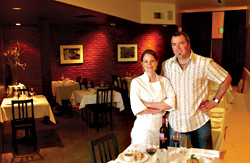EVEN WELL INTO adulthood, there’s a question no adult achievement—career, house, spouse, kids—can banish: When will our parents stop nagging us? In his memoir, The Bill From My Father (Simon & Schuster, $24), Bernard Cooper presents the answer, and you’re not going to like it. After waiting until virtually the last moment, per Jewish law, to schedule the unveiling ceremony for his father Edward’s gravestone, the author muses: “I still feared disappointing my father, providing him with definitive proof of my irresponsibility.” He imagines Edward’s reproach from the grave: “Eleven months and you’re too busy to throw on some decent clothes and honor your old man?”
Father occupies ambiguous territory for a memoir. It isn’t particularly mournful, though neither is it emotionally detached. Cooper, whose partner is a therapist, deconstructs his cantankerous, penny-pinching lawyer father’s life as an analyst might, yet he does so with enough grudging love to avoid the coldness of the therapist’s gaze.
More out of eccentricity than malice, Edward could be decidedly unkind. The titular bill is an actual invoice for $2 million—his rough estimate of what his son’s life cost him through age 28. Much later, when the old man’s health starts to worsen, he gets even more ornery. Some of the book’s more painful passages examine the classic conundrum of the adult child caring for a parent whose mental vigor is slipping away. Many of these situations are commonplace, however, and when Cooper tries to elevate the banal to poetic heights, his prose becomes overblown. (He characterizes his father’s bed as “a lectern, a pedestal, an altar, a rack, a boxing ring, a cavern of blankets, a spotlit stage,” and so on.) Luckily, a hilarious chapter about an evangelical video Cooper wrests from the hands of his dad’s last girlfriend leavens the book’s tone considerably.
Father‘s most powerful insight is that, apart from romance, a relationship with a parent—even a difficult one—is our best opportunity for emotional intimacy, and we’d be fools to squander it. Cooper also suggests, hauntingly, that when a person is as set in his ways as his father was, postmortem forgiveness is beside the point.







